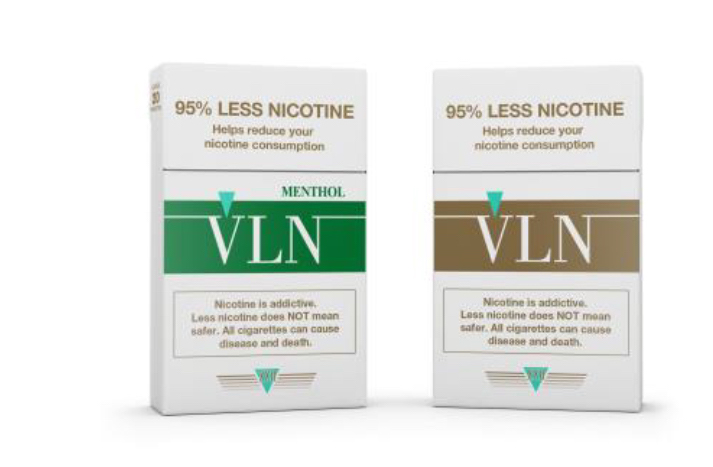| October 2007 |
 Centers Are Now Integrating Addiction Meds Into Treatment, “Pharmacophobia” is Dwindling Centers Are Now Integrating Addiction Meds Into Treatment, “Pharmacophobia” is Dwindling
A few years ago, Percy Menzies made a decision to get into the treatment business, opening a center in St. Louis that was built on the highly medical model that he had been promoting as a consultant for many years. Menzies’ belief in the efficacy of a medical model stemmed from his years as a top level product manager at Dupont, where he helped bring naltrexone to market, first as an anti-craving treatment for heroin in the 1980s and then for the treatment of alcoholism in the 1990s. And Menzies admits it was a frustrating experience at times: “Dupont basically brought naltrexone out just like any other drug, with a big focus on the general practitioner MDs.” Of course, anyone in the treatment industry knows that the general practitioners are mostly not at all focused on addiction, which was especially the case 20 years ago when naltrexone was introduced. And the reaction in the treatment industry was often downright hostile, as treatment centers were justifiably wary of pharmaceutical companies, whose claims that drugs were non-addictive, or had low risk of addiction, had turned out to be false in the past. Seed Money So good were they, that Vacovsky resolved to open his own clinic, which was the first treatment center in the U.S. ever to employ a medical model to treat addiction. Menzies helped out with some seed money for Vacovsky’s Assisted Recovery Centers of America, ARCA, which has been in operation 11 years in Phoenix. Inspired by Vacovsky, and looking for an effective alternative to traditional care, treatment entrepreneur Terry Bruce opened ARCA Georgia, with locations in Savannah and Atlanta, in 2000. Menzies followed soon after with ARCA St. Louis, where he has treated hundreds of clients with naltrexone in combination with behavioral interventions like cognitive therapy. New Meds Of course, ARCA’s approach, naltrexone combined with behavioral and medical intervention, has since been proven very efficacious by the powerful COMBINE study, one of the biggest studies ever undertaken into the treatment of alcoholism. Examining nearly 1,400 alcoholics at 11 academic sites around the country, COMBINE found naltrexone to be highly effective, especially when offered with medical management. It may be that studies like COMBINE are finally pushing more traditional players into integrating the new addiction meds into their treatment modalities. In announcing earlier this year that it had begun treating its patients with naltrexone and other FDA approved addiction meds, Hazelden said that if research showed the drugs were effective with minimal treatment, then even better results could be expected when meds were combined with the extensive care offered at Center City. The fact that such a traditional, cautious and very high profile player like Hazel-den has adopted addiction meds as an integral part of their treatment programs is a clear indication that the days of rampant treatment industry “pharmacophobia†are numbered, if not already over. Another Tool
Karlin asserted that one of the major changes the industry faces is the increasing adoption of more medically oriented approaches to treatment, specifically what he referred to as the coming “revolution” that will be driven by advancements in addiction treatment pharmacoptherapies. And Karlin warned that those centers that fail to adapt to the coming pharmacological revolution “will not survive.” Research Soars Spectra Intelligence, a biotech and pharmaceutical research house based in London, estimates that there are currently about 35 addiction drugs in various stages of commercial development throughout the world. Companies that are actively testing new addiction drugs in the U.S. include Alkermes, the developer of Vivitrol, and Catalyst Pharmaceutical Partners, which has raised $20 million from investors for clinical testing of a promising new compound known as Vigabatrin. And Hythiam Inc. has raised over $100 million on Wall Street for the development, testing and of its Prometa Program, for which clinically rigorous double blind placebo test data are expected in the near future. And Hythiam is investing millions in its Prometa Centers, the first of which opened up in Los Angeles a couple of years ago and the second of which opened in San Francisco early this year. The Prometa Centers are designed to promote the highly medical model of treatment that Hythiam CEO Terren Peizer sees as treatment’s future. |


 And she points out that the brand new med Vivitrol – the monthly injectable form of naltrexone – has shown “promising results,” adding that Vivitrol’s key contribution is that it eliminates the issue of medication noncompliance that arises with naltrexone in pill form. In a speech delivered in September at the Cape Cod Symposium on Addictive Disorders, CCSAD, CRC Health Corporation CEO Barry Karlin spoke of several key trends he believes will shape the future of the addiction treatment industry in coming years.
And she points out that the brand new med Vivitrol – the monthly injectable form of naltrexone – has shown “promising results,” adding that Vivitrol’s key contribution is that it eliminates the issue of medication noncompliance that arises with naltrexone in pill form. In a speech delivered in September at the Cape Cod Symposium on Addictive Disorders, CCSAD, CRC Health Corporation CEO Barry Karlin spoke of several key trends he believes will shape the future of the addiction treatment industry in coming years.








